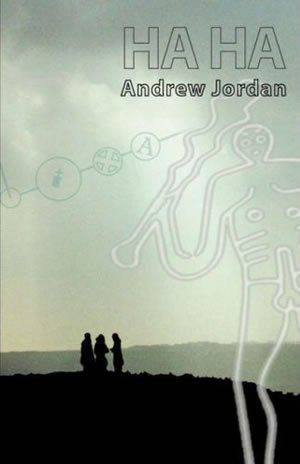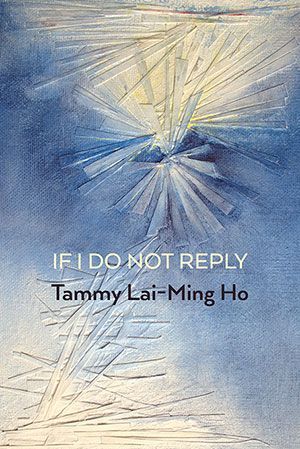Atar Hadari Gethsemane
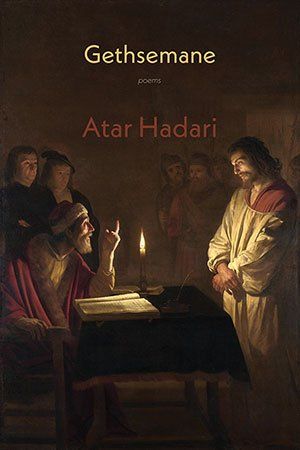
Khaled Hakim Letters from the Takeaway, & other distances
Published 2019. Paperback, 106pp, 8.5 x 5.5ins, £10.95 / $18
ISBN 9781848616370 [Download a sample PDF from this book here .]
For a brief period in the 1990s Khaled Hakim published sparingly and performed semi-improvisatory routines. This collection gathers all the work previously published. As the first—and for some time afterwards the only—black or Asian experimental poet in the UK, the work remains freakishly singular as he forged an occasional poetry that mixes narrative, theory, and stand-up.
‘Khaled Hakim is the great lost British experimental writer of the last quarter century. I believe that his importance … lies in the fact that he brings a powerful and original set of ingredients to the most important kind of contemporary poetry. His film-making background and engagement with the work of Stan Brakhage changed the speed and the angle of his L=A=N=G=U=A=G=E-polarized poetry. He was the only UK poet to work with David Antin’s conversational poetics. His Brummie-styled phonetic writing drew parallels with the similarly individual universes of Tom Leonard and bill bissett, and his class and colour were—and still are, of course—important. The conversations that his writing and being sparked in the 1990s have never really been followed through in British poetry.’ — Tim Atkins, from the Foreword to this volume
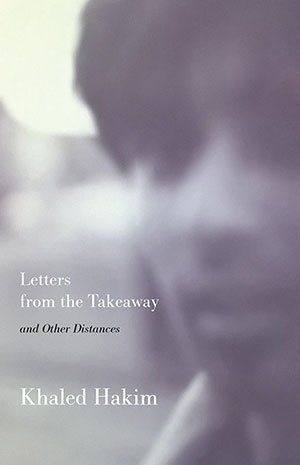
Khaled Nurul Hakim To the Hitchhiking Dead
To the Hitchhiking Dead is a book-length sequence culled from notebooks made between 1986–1988 when hitchhiking in Europe and England or otherwise doing nothing. An unknown poet – even to himself – who didn’t know he was seeking and fleeing lost love, and assured he was the only Asian freak on the roads in nail varnish and pearls. Those notebook sketches were towards an epical rhapsody that never got written. By the time I came to be published in the ’90s my poetry was framed in a post-Language discursivity: hard, vituperative, directed to actual audience-readers (epistles, performances). No-one would know that poet was made of such Romantic ravings. In 2019 I revisited the dozen notebooks to piece it together.
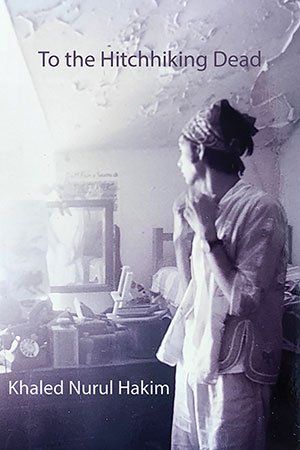
Catherine Hales hazard or fall
Published 2010. Paperback, 80pp, 8.5x5.5ins, £10.95 / $18
ISBN 9781848611139 [Download a sample PDF from this book here .]
"I think the necessity of poetry is to irritate, to evoke the uncomfortable response. Scraps of language from different places and registers—radio, tv, conversations, lawyer-speak, etc.—coalesce and collide, creating meaning from their juxtaposition, meaning that is not subject to control or definition but (among other things including just being what it is) questions the rules by which we are obliged to live, like grammar, syntax, meaning. Look in vain for (linear) narrative, for anecdote, for epiphanies, for messages, for making-the world-a-better-place: the world is a mess and language is messy and the world is language and any attempt to tidy it up with poetry is falsification. There is no utopian vision—utopias tend to end in concentration camps and piles of skulls. Putting the poem into something resembling conventional form is thus supremely ironic. It's like putting the genie back into the lamp." —Catherine Hales
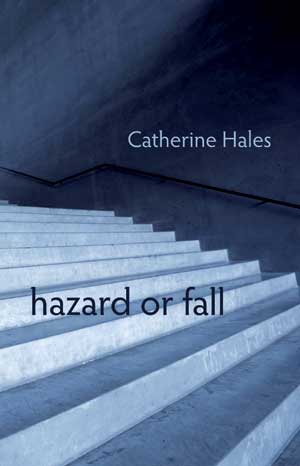
John Hall Couldn't You?
Published 2007. Paperback, 92pp, 8.5x5.5ins, £10.95 / $18
ISBN 9781905700516 [Download a sample PDF from this book here .]
Couldn’t You ? brings together most of John Hall's poems for the page written since the publication of Else Here in 1999 – and writing for the page here assumes black ink on white rectangular paper, but with the permissions that come with poems to engage that visual space of meaning with different tactics, ranging from the minimal and laconic forms of 'Gloss' and 'Harder than Ease' to the loquacious blocks of 'Here and There'.
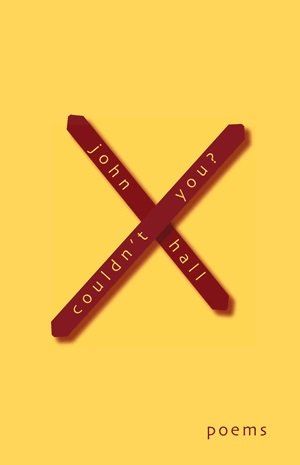
John Hall As a said place
Published 2017. Paperback, 86pp, 8.5 x 5.5ins, £10.95 / $18
ISBN 9781848615038 [Download a sample PDF from this book here .]
blink / and the outline is lost
As a said place gathers together poems written since 2011. The book is shaped around ‘I’m on the Train’, a sequence prompted by and on a repeated train journey from home to work through parts of Devon and Cornwall. It returns to the spirit of John Hall’s early book, Days. In each case the poems arise from the contingencies of the everyday and respond to the language demands that these seem to make. Before and after this sequence are clusters of individual poems … [a]ll the poems share a sense that poetry, among its other qualities, is also a mode – or a set of modes – of thinking: the saying of the world continues to matter, as does its unsaying, and that this by no means brings ease: the broken lines that constitute poetry negotiate ambivalent relations with the continuities of speech, with syntax, with the carefulness of thought.
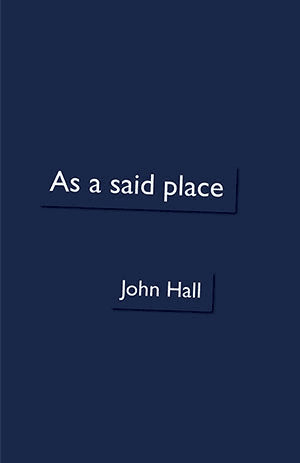
John Hall Essays on Performance Writing, Poetics and Poetry, Vol. 1: On Performance Writing, with pedagogical sketches
Published 2013. Paperback, 252pp, 9x6ins, £16.95 / $25
ISBN 9781848613171 [Download a sample PDF from this book here .]
In 1993, say, the term Performance Writing, if used at all, suggested simply writing for performance. By 2011, when the author of this collection became the first Professor of Performance Writing, it had attained a much wider — indeed international — currency in discussions of contemporary writing, and had entered the curriculum of a range of courses well beyond its intense first conceptual and pedagogic development at the adventurous Dartington College of Arts. The task — and indeed the task of many of these essays — had been to fill out the terms for an approach to writing that looked beyond and beside literature for its sources, references and material practices. These other frames included: the rapid changes taking place within the technologies for producing, circulating and receiving text; a 'turn to writing' within other cultural practices, especially perhaps its integral presence within visual and sonic culture; the increasing textuality of the shared environment (words in public places, for example); and finally, philosophical preoccupations with the idea of performativity and its entailment with language.
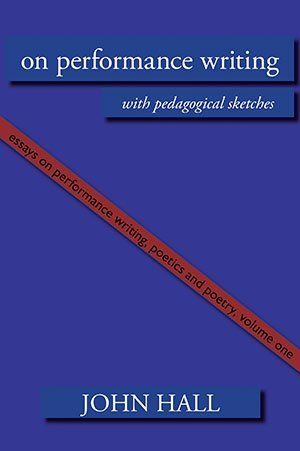
John Hall Essays on Performance Writing, Poetics and Poetry, Vol. 2: Writings towards Writing and Reading
Published 2013. Paperback, 278pp, 9x6ins, £16.95 / $25
ISBN 9781848613188 [Download a sample PDF from this book here .]
This companion to the volume above brings together most of the essays—taking a deliberately broad view of that term so as to include, for example, two single-page visual essays and one sonnet — on the reading and writing of poetry by the poet and teacher, John Hall. The collection is in two parts. The first, starting with the often cited 'Writing and Not Writing', takes on, in the spirit of poetics, current issues for the category of poetry, considered both formally and contextually, and with particular interest in reading as a practice in which poems are actions and events rather than capturable things. The longer second part develops these thoughts through readings of specific, mostly contemporary, poems: the poets whose work is read are not intended to represent a proposed new canon. They have all, though, contributed significantly to a growing body of work in recent decades that brings together the social and bodily pleasures (and displeasures) of poetry with the ethical demands of truthfulness. They include Andrea Brady, Kelvin Corcoran, Allen Fisher, Harry Guest, Lee Harwood, Peter Hughes, John James, Nicholas Johnson, R.F. Langley, Karen Mac Cormack, Peter Middleton, Geraldine Monk, Alice Notley, Douglas Oliver, F.T. Prince, J.H. Prynne, John Riley, Peter Riley and John Wieners.
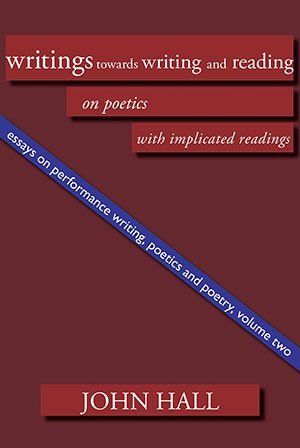
Alan Halsey Rampant Inertia
Published 2014. Paperback, 116pp, 9x6ins, £12.95 / $20
ISBN 9781848613560 [Download a sample PDF from this book here .]
In Rampant Inertia Alan Halsey, identified by Tony Lopez as a 'normally secret and invisible language spy', is found going about his familiar business, dismantling the rhetoric of Austerity while tracking scientific and other uncertainties, rereading Burton in the light of the Arab Spring, miming Our Mutual Friend , transcribing a racehorse's gossip, mapping the bricked-up public toilets of Sheffield, tapping Lewis and Clark's conversation in the Lost Trail Pass or fitfully failing to translate Aretino's erotica. Is 'Baa baa black sheep' a political poem? He thinks so. Rampant Inertia completes a trilogy of books, following Term as in Aftermath (Ahadada 2009) and Even if only out of (Veer 2011) although it may be the third in a tetralogy. Selections from Halsey's earlier work appeared in Five Years Out (Galloping Dog 1989), Wittgenstein's Devil (Stride 2000), Marginalien (Five Seasons 2005) and Not Everything Remotely (Salt 2006).
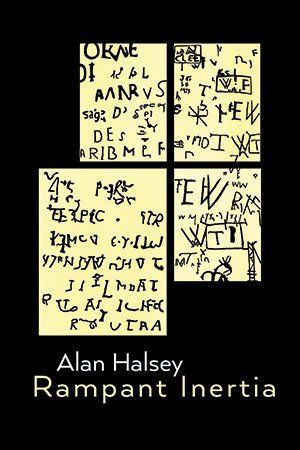
Alan Halsey Selected Poems 1988–2016
Published 2017. Paperback, 260pp, 9 x 6ins, £16.95 / $25
ISBN 9781848615397 [Download a sample PDF from this book here .]
Selected Poems 1988–2016 focuses on Alan Halsey’s longer poems from the period and brings together the previously scattered sequences, Ars Poetica, Tracks & Tracts of the Lizopard, A Looking-Glass for Logoclasts and Latin for Today : The Sequel . It includes some revised and expanded texts such as the John Dee libretto Loagaeth alongside poems written since Rampant Inertia , published by Shearsman in 2014.
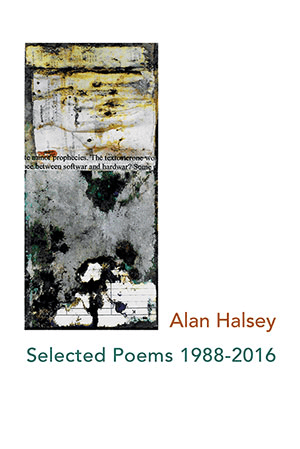
Kelvin Corcoran & Alan Halsey Into the Interior
Published 2022. Chapbook, 24pp, 8.5 x 5.5ins, £7.50 / $10.95
ISBN 9781848618459
What are the captions using us for?
Halsey's series of diagrams and quatrains for Into the Interior is suggestive of a journey through the rebus-like territory of thought itself. Corcoran doubles the quatrains in answering him back, as if such a dialogue might be how to talk to a friend exploring the enigmatic signs of the journey remembered from long ago and made present again.
Poets Kelvin Corcoran and Alan Halsey have often collaborated. In the past this brought us
Your Thinking Tracts or Nation s (West House 2001),
A Horse That Runs: To & Fro with Wallace Stevens (Constitutional Information 2015), and
Winterreisen (Knives Forks and Spoons Press, 2019).
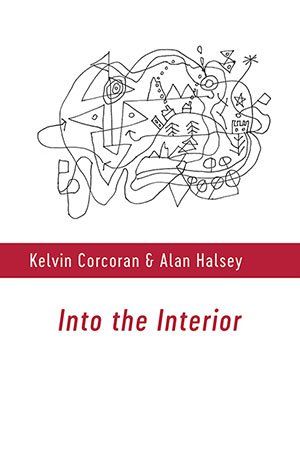
Lucy Hamilton Stalker
Published 2012. Paperback, 90pp, 8.5x5.5ins, £10.95 / $18
ISBN 9781848612242 [Download a sample PDF from this book here .]
The insidious peril that haunts these pages appears in various guises against a backdrop of France, Germany, Greece, the USA and the UK. Stalker is a collection of prose poems in which the narrator attempts to make sense of everyday experience, turning to Rilke, Van Gogh, Steinbeck and others in her quest for understanding.
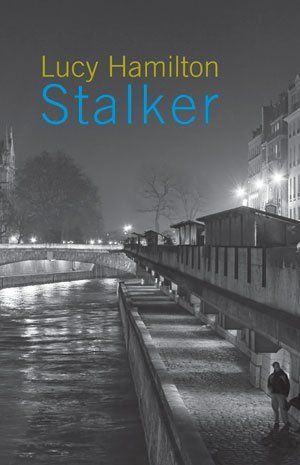
Lucy Hamilton Of Heads and Hearts
Published 2018. Paperback, 82pp, 8.5 x 5.5ins, £10.95 / $18
ISBN 9781848615717 [Download a sample PDF from this book here .]
“There is nobody writing prose poetry in any way close to Lucy Hamilton’s. Of Heads & Hearts is an intricate and rich collection that riffs on the interconnectedness of human relationship with the deft movements of a musical score. Here is a poet writing at the height of her talent using precise and controlled language to build toward a cumulative collage of characters, threads and associations all in conversation with one another. Of Heads & Hearts becomes more and more rewarding with each re-reading, most notably the utter ache at the heart of the ‘Requiem for the Engineer’ sequence.”
―Kaddy Benyon
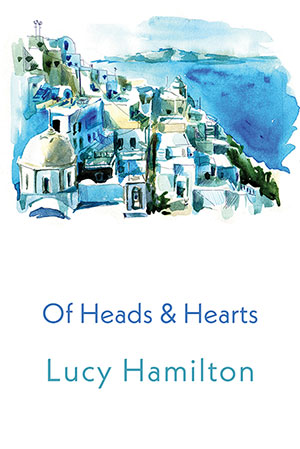
Lucy Hamilton Viewer / Viewed
Published October 2023. Paperback, 80pp, 8.5 x 5.5 ins, £10.95 / $18
ISBN 9781848618879 [Download a sample PDF from this book
here.]
“When I approach experimental poetry, particularly when it’s related to images – the ekphrastic relationship – I ask myself, does it work? By that I mean, does it carry off the symbiotic closeness, does it make me feel there’s a strong reason why the two art forms feed off each other? In the case of Lucy Hamilton’s
Viewer / Viewed, the answer is a resounding Yes.
First, the images: photomontages of close family members are transposed with each other, making one instead of two separate photos. Her photomontages led her, after a fallow period, to begin writing poems. “The tug of juxtaposition”: the inspiration for the creation of image and poem in this work, enabling her to resurrect memories of those she has grown up with and loved, the places she has travelled to, the objects holding significant meaning for her. The poems are composed in couplets and consist of thought and image units, decisions of what to juxtapose, quotations, and pauses separated by vertical lines or lines that begin with capital letters. The beauty of this process – for this work is, among other things, an illustration of a poetic process – results in the poems’ extraordinary accessibility and clarity. The back-and-forthness of image and poem, each illuminating the other, is exactly what a successful ekphrastic relationship should display, and what makes this collection ultimately so original and rewarding.” —Robert Vas Dias
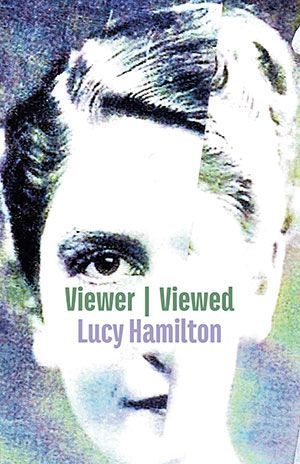
Robert Hampson & Ken Edwards (eds.) CLASP: late-modernist poetry in London in the 1970s
Published 2016. Paperback, 180pp, 9 x 6ins, £14.95 / £23
ISBN 9781848614604 [Download a PDF of the introduction to this book here .]
CLASP is an exercise in collective remembering – with, as Lawrence Upton’s essay suggests, a consciousness of memory work as also a process of selecting, forgetting and inventing. The original plan had been to focus on the 1970s, the decade during which [Ken Edwards and I] had co-edited Alembic with Peter Barry. Some of those we approached felt they could not usefully remember enough of their poetry activities in this period; some were reluctant to return to the past. Also, as the project developed, it became clear that the original plan wouldn’t work: the history did not fit neatly into the limits of the decade. We would have to start earlier to understand the roots of 1970s London poetry, and we would have to stray into the 1980s to see how some of the debates and actions of the 1970s played out. —Robert Hampson, from the Introduction
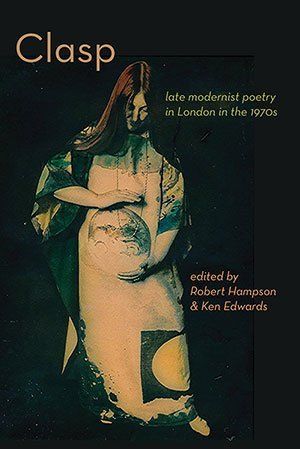
Robert Hampson Seaport
Published 2008. Paperback 8.5x5.5ins, 88pp, £10.95 / $18
ISBN 9781848610293 [Download a sample PDF from this book here .]
Seaport deals with many aspects of the history and development of Liverpool, drawing on a wide range of documentary sources, and culminating with a vivid account of what the national press called the 'Toxteth Riots' of 1981. This event is seen in the context of the repressive policing methods of the day, especially as directed at black youths …[and] … in the historical context of Liverpool's notorious role in the slave trade, and of subsequent patterns of racial discrimination …
(from Peter Barry's Introduction to this volume)
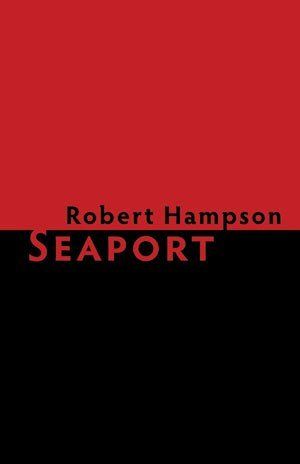
Lesley Harrison Disappearance — north sea poems
Shortlisted for the 2021 Michael Murphy Memorial Poetry Prize
Published 2020. Paperback, 80pp, 8 x 8ins, £10.95 / $18
ISBN 9781848616981 [Download a sample PDF from this book here .]
Disappearance is Lesley Harrison’s first full-length collection, bringing together new work which examines the coastline and our uneasy, unresolved relationship with the waters that surround us. Around the northern North Sea rim, the coastal margin is constantly being made and unmade by vast weather systems and currents that begin thousands of miles away. Drawing from archives, folk myth and cultural memory, these poems make real our sense of living at the edge of an older, sub-polar world, and the ongoing human process of negotiation with, of giving meaning and scale to, this unstable and ultimately unknowable space.
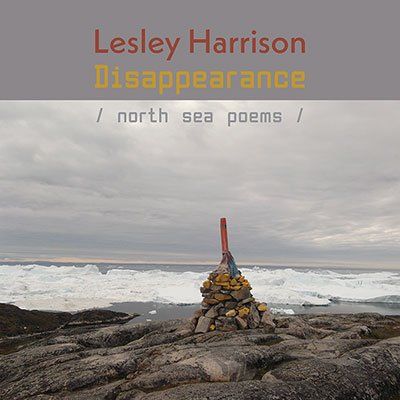
Lee Harwood New Collected Poems
Published 2023 . Paperback, 724pp, 9 x 6ins, £27.50 / US$45.
ISBN 9781848618558 [Download a PDF of the introduction to this book
here .]
Lee Harwood’s work defines the poetry of an era that saw poetry itself at its most exciting, expansive and innovative. His achievement runs through the very core of these qualities and has enriched the possibilities of poetry through to the present. As a leading British poet well known for his unique but flexible voice, speaking in a variety of forms, from direct lyric to elaborate fictions, from notebook poems to conceptual found texts, from complex cut ups to assembled fragments. A restless innovator across the decades he delighted in working in such a multiplicity of forms and with a disarming directness that appeared to escape whatever poetic rules may have been favoured on occasion. His voice is by turns gentle and erudite, erotic and funny, moving and even faux-sentimental. Discussions of contemporary poetry are left incomplete without recognition of his considerable achievements.
From his earliest pamphlet title illegible (1965) to his last collection The Orchid Boat (2014), New Collected Poems assembles all the poems (and creative prose) Harwood published in pamphlet or book form in broadly chronological order, fashioned upon the ordering of Harwood’s own 2004 Collected Poems . Some excised poems have been restored and fugitive texts that appeared in an exclusive edition have been included. Brief uncollected material from the end of his career completes this rich body of work.
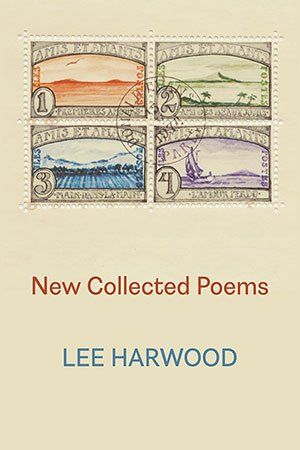
Lee Harwood Collected Poems
Published 2004. Paperback 9x6ins, 521pp. £19.95 / $30. OUT OF PRINT.
ISBN 9780907562405
A major event, this volume was the first career-spanning collection of Lee Harwood's work, and its publication was timed to coincide with the author's 65th birthday in 2004. Most of Lee Harwood's work is currently out of print, including the large-scale Selected Poems ( crossing the frozen river ) published by Paladin in the late 1980s, and this Collected makes all of it available once again, including some hard-to-find material and some recent uncollected work.
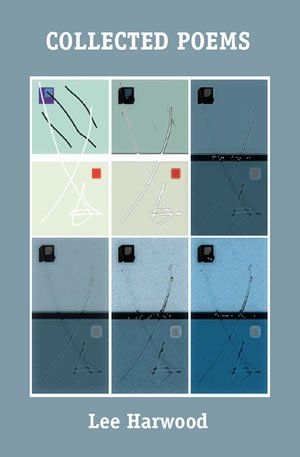
Lee Harwood Selected Poems
Published 2008. Paperback, 140pp, 9x6ins, £12.95 / $20
ISBN 9781905700936 [Download a sample PDF from this book here .]
In 2004, Shearsman published Lee Harwood's Collected Poems, which proved what many of us had known for many years: that Harwood is one of our living masters. Four years on, and we now offer a smaller selection of his work, which will serve as an introduction for new readers, covering the period from 1965 to 2007. While the lion's share of the poems are drawn from the Collected , a few new poems are also featured.
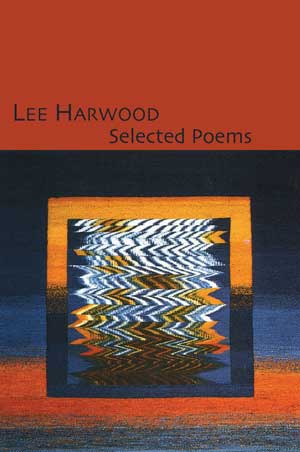
Lee Harwood & Kelvin Corcoran Not the Full Story: Six Interviews with Lee Harwood
Published 2008. Paperback, 116pp, 8.5x5.5ins, Price £12.95 / $18
ISBN 9781848610019 [Download a sample PDF from this book here .]
To accompany Lee Harwood's new Selected Poems , we offer also this book-length collection of interviews with Harwood by his long-time friend and admirer, Kelvin Corcoran — himself also a Shearsman author. An invaluable opportunity to "hear" Harwood talking about poetry and about his own work.
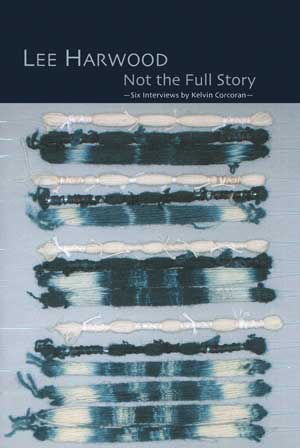
Lee Harwood HMS Little Fox
The Shearsman Library 11
Published 2018. Paperback, 100pp, 9 x 6ins, £10.95 / $18
ISBN 9781848615939 [Download a sample PDF from this book here .]
This was Lee Harwood’s first major collection after his remarkable sequence of Fulcrum volumes ( The White Room, Landscapes and The Sinking Colony ) had established him as one of the most interesting younger poets in the England. HMS Little Fox shows Harwood striking out in new directions, some of which were not be further developed, but it also shows evidence of his mature style. Although available in the author’s Collected (Shearsman, 2004), this volume faithfully reproduces the original edition, with its postcard images, Egyptian sigils, and also one poem that the author decided to exclude from his Collected .

Michael Haslam Mid Life
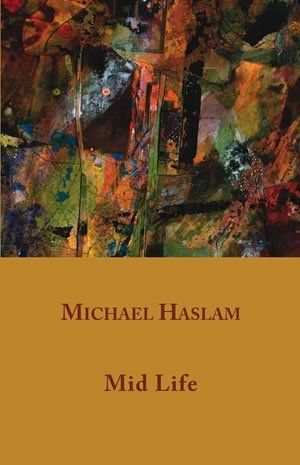
Michael Haslam Ickerbrow Trig
Published 2020. Paperback, 118pp, 9 x 6ins, £12.95 / $20
ISBN 9781848616974 [Download a sample PDF from this book here .]
Ickerbrow Trig , the book, is simply a collection of poems written since A Cure for Woodness . As for the book's title, it’s simply the remnant of a bonnet-bee and an exhausted pun. As a topographical feature, it exists, un-named as such on any map. As a topographical feature, it exists, un-named as such on any map, though Ickerbrow is better known to followers of the Ordnance Survey as High Brown Knoll. (Michael Haslam)
“In Michael Haslam we have a genuine major poet of the north of England” —David Wheatley, The Literary Review , on Scaplings (included in this volume).

Ralph Hawkins The MOON, The Chief Hairdresser (highlights)
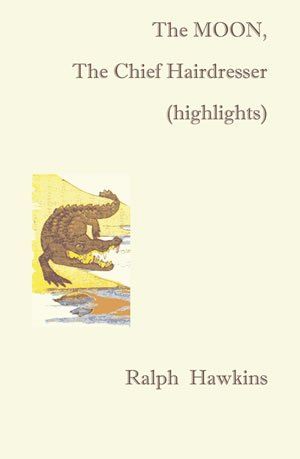
Ralph Hawkins Gone to Marzipan
Published 2009. Paperback, 120pp, 8.5x5.5ins, £12.95 / $20
ISBN 9781848610217 [Download a sample PDF from this book here .]
"Ralph Hawkins' poems always give the impression of turning up late and being drunk when they do arrive. [...] He does not bother with stage-setting. Each poem launches us into a series of 'direct experiences' from whose course we could work out the shape of the self experiencing them. We could either take the individual events and fit them into our own self-experience, or we could take each book as constructing a new 'shell self', a role we can both play for a while. Hawkins is not asking how experience happens, but by describing the course of a self he answers the question anyway. The course is one of attention, constantly switching on and off, jumping between planes; Hawkins' method is to eliminate whatever is not interesting, and his poetic line is as rapid, sporadic, shifting, polyvalent, slight and self-reversing as consciousness itself. We could describe his work as anarchistic, because it does not confirm any of the classificatory and causal judgments of our law-abiding society, and experiences absolutely no urge to replace these with a new set of rules and values." —Andrew Duncan
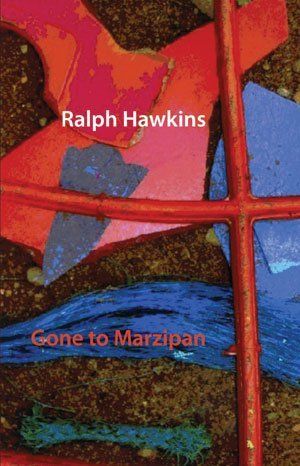
Ralph Hawkins It Looks Like an Island But Sails Away
Published 2015. Paperback, 120pp, 9 x 6ins, £12.95 / $20
ISBN 9781848614208. [Download a sample PDF from this book here .]
“Ralph Hawkins’ poems minimise the gap of ‘constructive effort’ between the basic seeking of pleasure and pleasurable sensations, and the “mediated” pleasure of the poem. […] He does not bother with stage-setting. Each poem launches us into a series of “direct experiences” from whose course we could work out the shape of the self experiencing them. Hawkins is not asking how experience happens, but by describing the course of a self he answers the question anyway. The course is one of attention, constantly switching on and off, jumping between planes; Hawkins’ method is to eliminate whatever is not interesting, and his poetic line is as rapid, sporadic, shifting, polyvalent, slight and self-reversing as consciousness itself. […] The removal of conventional connections leaves a vast space for originality: his style is located in the edits, the jumps.” —Andrew Duncan
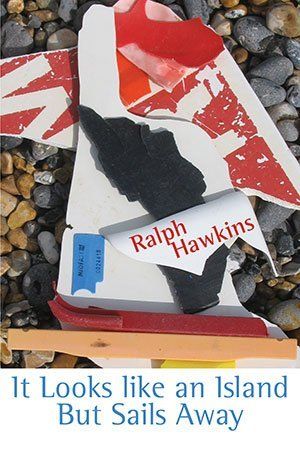
Ralph Hawkins Tell me no more and tell me
First published 40 years ago by Grosseteste, this was Ralph Hawkins' first major collection.
Ralph Hawkins’ poetry is yeasty and written where the meanings are made rather than assigned. Its impulse is towards the immediate, apparently unsynthesised event where thinking occurs moment by moment. The aesthetic bears some resemblance to close mic techniques, we are drawn near to the experience and all distractions are removed for the intricacies of pure resonance. It produces a poetry as tricky as consciousness itself and its rewards are some considerable distance from the prefabricated commonplace expression of lyrical epiphany. Here is a poetry that is expansive, often humorous and always anarchic. In Tell me no more and tell me Ralph Hawkins’ refusal to whistle along with the sanctioned doggerel of English poetry and its returns is startlingly evident, as it has been throughout four decades of creativity.
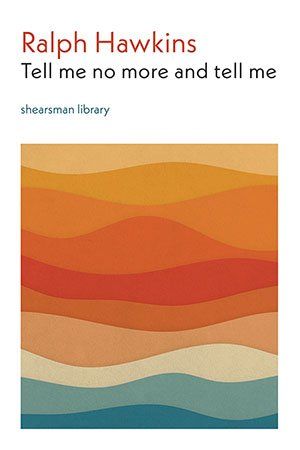
Ralph Hawkins A Fancy Breeze Gets Up
A Fancy Breeze Gets Up collects together the poetry written by Ralph Hawkins since 2015 and the publication of It Looks Like An Island But Sails Away. In 1978 in his first book, English Literature, and before the concept of trigger warnings arose, Ralph Hawkins announced that he quite liked The Waste Land, it’s ‘like holding a gun at an ordinary/everyday person.’ His own poetry has maintained a variously combative Modernist verve since then, and whilst no one has been threatened or shot because of it, it is a risky, occasionally disquieting and humorous poetry which challenges and rattles the possibilities of poetry itself. A Fancy Breeze Gets Up exhibits these qualities abundantly in three different ways in the three parts of the book.
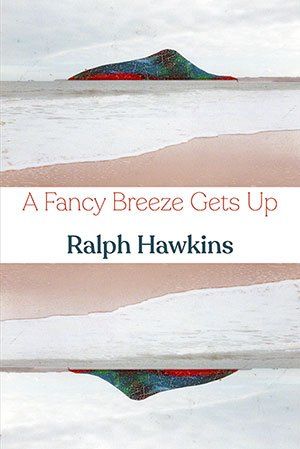
Jennifer Morag Henderson Jofrid Gunn
Published 2025. Paperback, 99pp, 9 x 6ins, £12.95 / $20
ISBN 9781848619951
Jofrid Gunn tells the story of a woman who came from the Faroe Islands in the 16th century to marry into the Clan Gunn, in the north of Scotland. Inspired by the glimpses of lives found in archives, this is a biography in poetry. Each poem can be read individually, but when put together they tell the story of Jofrid’s life – descriptions of the incredible natural places she lived in, the power of the sea, her family life, encounters with the huldufólk or 'hidden people' of legend, and her small part in the clan battles and blood feuds of the time.
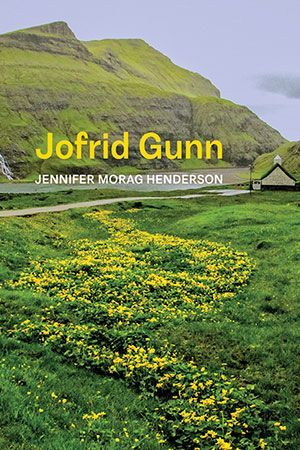
David Herd Walk Song
Written between 2015 and 2020, the poems of Walk Song build through a series of sequences which look to animate solidarities and the languages of rights. Taking their bearings from the Refugee Tales project, and always grounded in the collective walk, these are poems of friendship and movement, of landscape and politics, of action and hope. Addressing the environments we have made, the border and its hostilities, Walk Song sets out to picture settings in which the language might be opened, step by step.
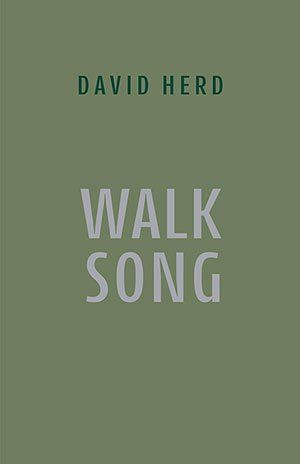
Robert Herrick Hesperides
Shearsman Classics No. 27.
[Download a sample PDF from this book here .]
Published 2018. 9x6ins, 436pp, £19.95 / $30. ISBN 9781848616295
A reproduction of Herrick's only publication during his lifetime, seen through the press by the author himself in 1648. The book contains more than a thousand poems by one of the great lyric poets of the Caroline era, many of whose poems were set to music by William Lawes and other luminaries of the London musical scene. This edition reproduces the original spelling, in all its quirkiness, and copies the layout, albeit in a larger page-size.
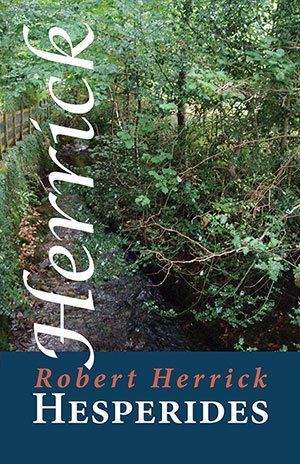
Robert Herrick Selected Poems
Shearsman Classics No. 2. Edited by Tony Frazer.
Published 2007. 8.5x5.5ins, 120pp, £12.95 / $20.
ISBN 9781905700493 [Download a sample PDF from this book here .]
Robert Herrick (1591–1674) was perhaps the greatest poet to have worked in Devon. Born in London, the son of a goldsmith, he studied at Cambridge and later fell in with the London poets who had gathered around the magnetic figure of Ben Jonson. In order to make a living—since he had not pursued the family trade—he entered the Church and in 1627 was appointed chaplain to the Duke of Buckingham, whom he accompanied on an unsuccessful military expedition in 1627. In 1629 he was appointed to the living of Dean Prior, a village on the edge of Dartmoor, about half way between Exeter and Plymouth. He was to remain there for the rest of his life, with the exception of the Cromwellian period from 1647–1660, during which he was expelled for his royalist sympathies and, no doubt, also doctrinal disagreements.
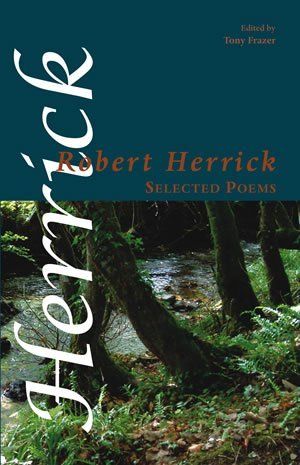
Lynne Hjelmgaard The Ring
Published 2011. Paperback, 80pp, 8.5x5.5ins, £10.95 / $18
ISBN 9781848611474 [Download a sample PDF from this book here .]
The Ring is a book-length sequence of poems where the protagonist, a new young widow, moves from the strangeness of city to city, (from Copenhagen to London to Rome to Paris) trying to come to terms with her loss while looking forward to a possible new life. The title poem concludes the volume where the widow suggestively lets go of some of her past by taking off her ring.
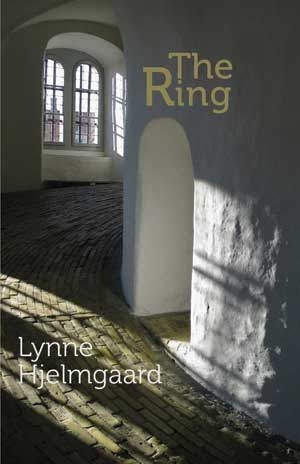
Tammy Lai-Ming Ho If I Do Not Reply
Published 2024. Paperback, 112pp, 9 x 6ins, £12.95 / $20.
ISBN 9781848619128
“A unique poetic testament of life in and out of Hong Kong between 2019 and 2022, spanning the Covid epidemic, and unrelentingly outspoken and courageous in defence of human freedoms facing systemic repression. Yet subject matter isn’t all. Gifted in every aspect of her poetic craft. Tammy Lai-Ming Ho is witty, clever, passionate – and acutely observant of the inner life. Although written with a Hong Kong sensibility, these poems transcend contemporality and location. They map our times: all our times.” — Richard Berengarten
Paul Holman The Memory of the Drift (revised & expanded edition)
Published 2020. Paperback, 142pp, 8.5 x 5.5ins, £12.95 / $20
ISBN 9781848617346 [Download a sample PDF from this book here .]
This greatly expanded volume combines a revised version of the 2007 text of The Memory of the Drift, Books I-IV (also published by Shearsman Books — see below) with a fifth book, 'A New Walking Age', plus out-takes and abandoned, but related pieces, and prefaces the whole with a long related work, 'Airborne or Still'.
The book's title, which refers both to Charles Olson and the Situationist International, gave evidence of its sympathies and intended range at the outset. The Memory of the Drift began as a text written out of, and concerned with, a counterculture that was inevitably defined in largely negative terms (there has, after all, been so much to refuse) — it has become increasingly dominated by a perception of the practice of writing as an operation performed within a greater magical current.
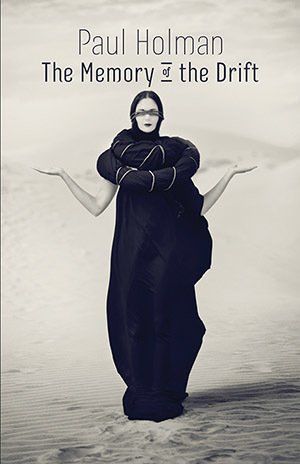
Paul Holman The Memory of the Drift — Books I-IV
Published 2007. Paperback, 84pp, 8.5x5.5ins, £10.95 / $18. OUT OF PRINT.
ISBN 9781905700295
This volume combines a revised text of the first part of The Memory of the Drift (written 1993-1999, and originally published in 2001) with the three interlocking, previously uncollected, books in which its argument is extended: In the Common Era, Dog Mercury and Vicinal .
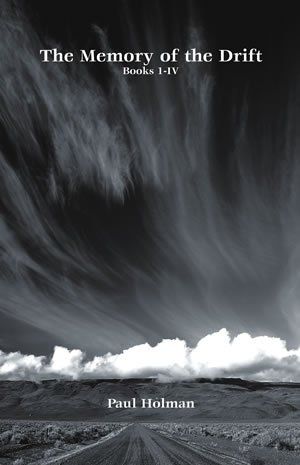
Jeremy Hooker Upstate – A North American Journal
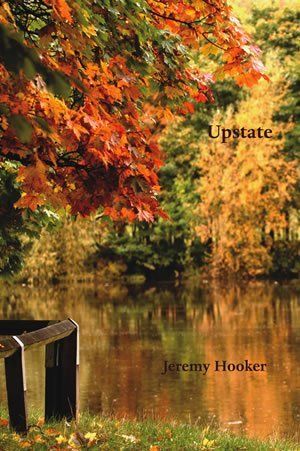
Jeremy Hooker Openings. A European Journal
Published 2014. Paperback, 292pp, 9x6ins, £16.95 / $25
ISBN 9781848613041 [Download a sample PDF from this book here .]
Openings is a sequel to Jeremy Hooker's earlier Welsh Journal and Upstate : A North American Journal , permitting us a peak over the shoulder of a fine English poet at work, and on the move.
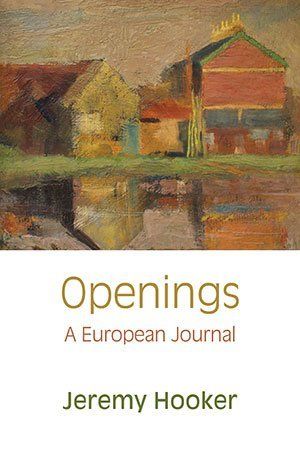
Jeremy Hooker Ancestral Lines
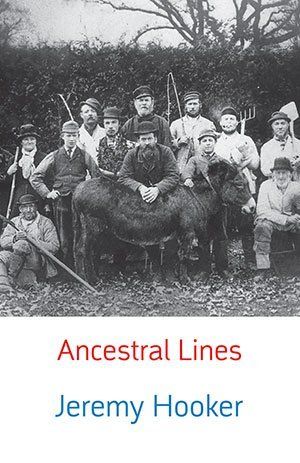
Jeremy Hooker Diary of a Stroke
Published 2016. Paperback, 190pp, 9 x 6ins, £14.95 / $23
ISBN 9781848615090 [Download a sample PDF from this book here .]
Diary of a Stroke is a poet’s journal with a difference. After suffering a stroke in July 1999, Jeremy Hooker kept a diary of his experience in hospital and of the subsequent period of recuperation at home, which ended with his return to work shortly after January 1, 2000. As in his other published journals, he observed the life around him, with notations of the living moment giving rise to reflection. Closeness to death gave his thinking about questions of ultimate meaning a special urgency. As time passed, he found the diary becoming a memoir of his early years. The past was coming back to him in ‘scenes’, which were ‘quick with sensation and laden with memory’. As a consequence, he was able to write about people dear to him – especially his parents and brothers – who had played a formative part in his life. At the same time as he was learning to walk again, and describing his immediate Somerset environment, he was remembering and vividly describing growing up in rural southern England during and after the Second World War.
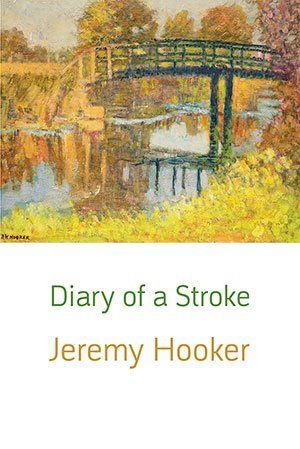
Jeremy Hooker Word and Stone
Published 2019. Paperback, 88pp, 9 x 6ins, £10.95 / $18
ISBN 9781848616721 [Download a sample PDF from this book
here .]
Word and Stone is questioning poetry which explores the ground between language that seeks meaning, and the obduracy of matter, and between life and what seems dead. Its concern is with a sense of the sacred, and the possibility of renewing words such as ‘spirit’ and ‘soul’ in a materialist culture. But it celebrates the material world too, drawing upon nature and history in Hooker’s native Hampshire and his adoptive South Wales. It contains a number of elegies, paying tribute to friends, and to poets such as T. S. Eliot, David Gascoyne, and Christopher Middleton, and the Americans James Schuyler and Charles Reznikoff.
Word and Stone is concerned overall with ‘quickness’: how words may animate stone, and intimate the life of the dead.
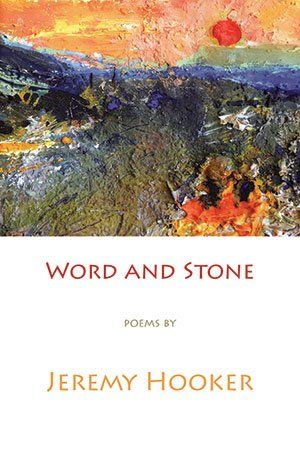
Jeremy Hooker Selected Poems 1965–2018
Published 2020. Paperback, 278pp, 9 x 6ins, £16.95 / $25
ISBN 9781848617070 [Download a sample PDF from this book here .]
This volume draws on over 50 years of poetry written by a poet who stands a little askew to the dominant modes in Britain: an Englishman in Wales, and an English poet with a decided admiration for the work of both George Oppen and David Jones, two very different Modernist exemplars, whose work often seems to be admired rather than engaged with in this archipelago. Jeremy Hooker is a literary explorer, and a poet with a powerful sense of place, whose joy in landscape and his surroundings shines through his body of work.
"I am a lyric poet who seeks to free himself from the limitations of a narrow subjectivity." — Jeremy Hooker
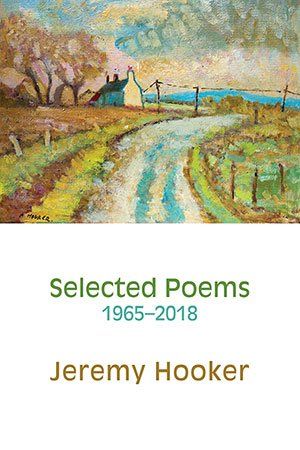
Jeremy Hooker Art of Seeing
— Essays on Poetry, Landscape Painting & Photography
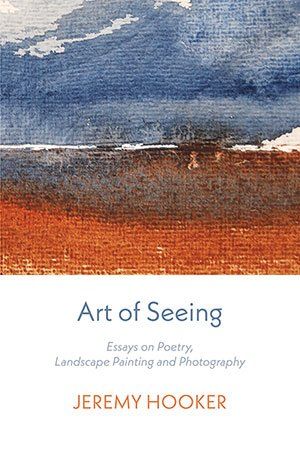
Jeremy Hooker The Release
Since Welsh Journal (2001), I have periodically adopted a form of writing that juxtaposes prose and poetry. The Release is a work of this kind, in which diary entries and poems are combined and interact. Roughly speaking, the diary records experience that generates the poems, or, to use another metaphor, the poems disclose their roots in the prose. Between June 2019 and August 2020, I spent four long periods in hospital, initially in Prince Charles Hospital in Merthyr Tydfil, and latterly in the Renal Unit at The Heath in Cardiff. The diary records my experience as a patient and reflects aspects of the life of the hospital; the poems respond to what I felt and saw in the ward, but also go beyond being a record of everyday reality. Like my Diary of a Stroke and other journals, The Release is a poet’s journal. In ways that the book describes, the periods of hospitalisation proved to be intensely creative. This was partly due to having so much time to write and read and think, together with the ever-present sense of mortality. (Jeremy Hooker)
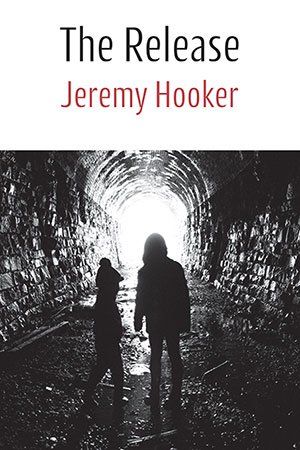
Jeremy Hooker Addiction: A Love Story
Published 2024. Paperback, 244pp, 9 x 6ins, £14.95 / $23
ISBN 9781848619456
Addiction is the story of a double struggle. It is about the effort of Jeremy Hooker and his wife, Mieke, to combat the alcoholism that eventually contributed to her death. Based largely on the poet's journal, it contains poems written as acts of survival. The book concludes with a sequence of elegiac poems.

Jeremy Hooker Preludes
Published 2024. Paperback, 90pp, 8.5 x 5.5ins, £10.95 / $18
ISBN 97818486195316
These Preludes are primarily autobiographical poems written in old age. Their principal 'ground' is the south of England, and especially the area between the New Forest and the Solent, where Jeremy Hooker was brought up. They are, therefore, 'poems of place', and direct or oblique expressions of the making of a poet. Some deal with raw experience, but the aim in all is what Hooker (after Henry Vaughan) calls 'quickness' – not a narrow 'self-expression', but the transpersonal reality of the livingness of being in place.
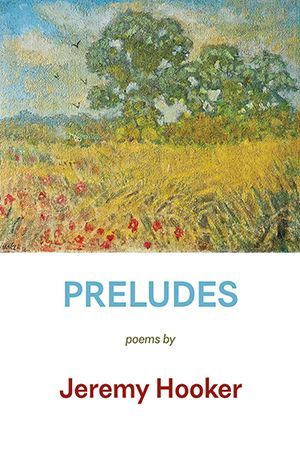
Jeremy Hooker With a Stranger's Eyes
Published 2025. Paperback, 86pp, 8.5 x 5.5ins, £10.95 / $18
ISBN 9781848619708
"With a Stranger's Eyes is in two parts. The first, 'Dutch Girl' is set mainly in the Netherlands, where Jeremy Hooker lived for four years with his wife, Mieke. The second, longer part records responses to history and landscapes primarily in South Wales where Hooker has lived since 2001. It also celebrates a number of Welsh writers, such as David Jones, Idris Davies, and Waldo Williams. The spirit of the poetry reflects the Welsh tradition of praise poetry. It is, however, very much the work of an English poet who recognises that he will always be a stranger in Wales, as he was also in Holland. Strangeness, in fact, is a fact that he recognises as integral to our human condition, which may produce an 'art of seeing' below superficial vision of surfaces into perception of the sacred and the quickness of existence." —Jeremy Hooker
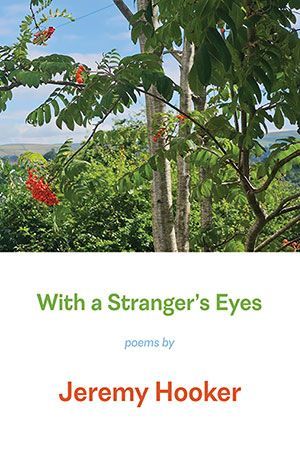
Jeremy Hooker & Lee Grandjean Presence and Place
Published 2025. Paperback, 208pp, 9 x 6ins, £14.95 / $23
ISBN 9781848619715
"I have no record of the date when I first met Lee Grandjean but I remember the occasion well. It was towards the beginning of my period as creative writing fellow at Winchester School of Art and I had introduced myself to the students by giving a reading of my poetry. At the end of the reading, to my astonishment, a man in a white boiler suit stood up and clapped. Nervous on this occasion, my first thought was that this was intended as satire. It was, in fact, appreciation, and this was my first encounter with Lee Grandjean, who, at that time, held a sculpture fellowship at the School of Art. We talked after the reading and it wasn’t long before he was showing me the sculpture he was at work on. Thus began a creative relationship that has been, and continues to be, immensely important to both of us." —Jeremy Hooker
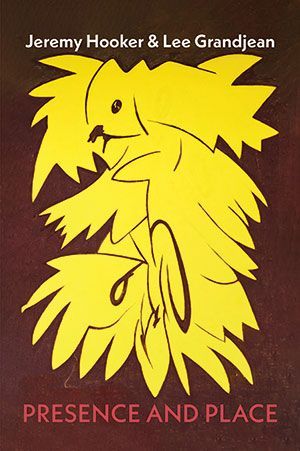
Gerard Manley Hopkins The Wreck of the Deutschland
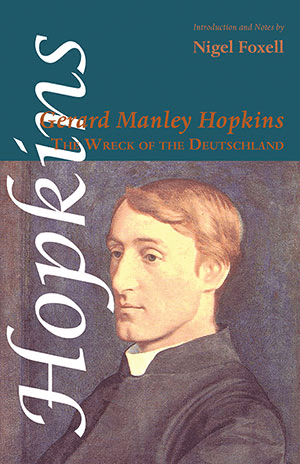
Peter Hughes Nistanimera
Published 2007. Paperback, 80pp, 8.5x5.5ins, £10.95 / $18
ISBN 9781905700288 [Download a sample PDF from this book here .]
A new collection from this Cambridge-based poet and painter, his first new collection in several years.
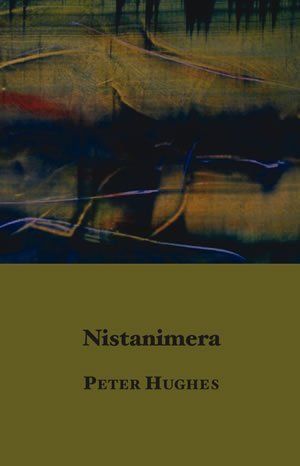
Peter Hughes The Summer of Agios Dimitrios
Published 2009. Paperback, 88pp, 8.5x5.5ins, £10.95 / $18
ISBN 9781848610644 [Download a sample PDF from this book here .]
The Summer of Agios Dimitrios started out as a poetical journal kept on the west coast of the Mani peninsula in Greece as the summer of 2007 turned into its autumn.
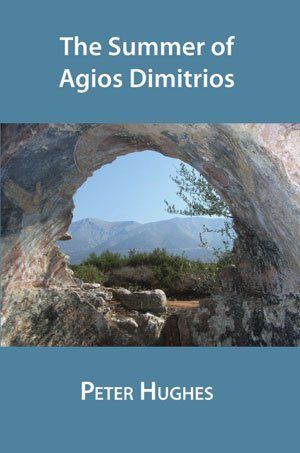
Peter Hughes Selected Poems
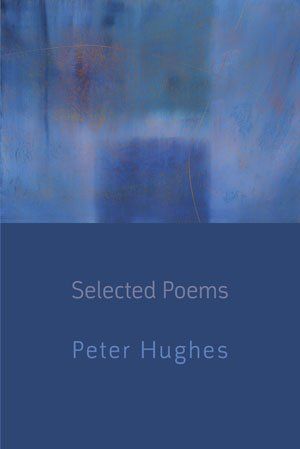
Peter Hughes & Simon Marsh The Pistol Tree Poems
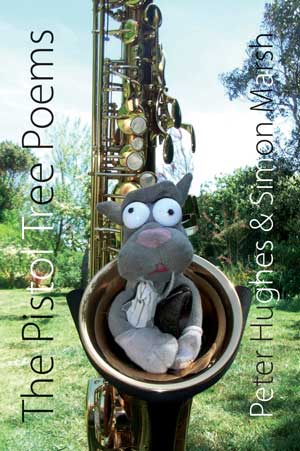
Peter Hughes A Berlin Entrainment
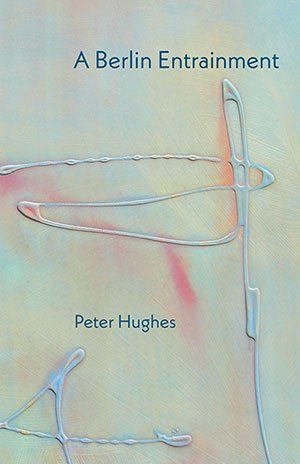
Peter Hughes The Modulus of Rupture
Published July 2023. Paperback, 92pp, 9 x 6 ins, £10.95 / $18
ISBN 9781848618787 [Download a sample PDF from this book here.]
Comments on previous work by Peter Hughes:
‘a poet who stands at the very forefront of twenty-first-century lyricism’ —Ian Brinton, P.N. Review
‘Peter Hughes personalises and modernises the Romantic lyric mode of address, blending it into the stratum of practical everyday living with its hassles and clutter, and the conversational speaking voice. He plays with the inheritance of the European love poem as a renewal of it, sometimes seeming to undermine it and then folding it back into his purpose. This is a poet working very much in his own way, and breaking the rules of just about all current schools.’ —Peter Riley
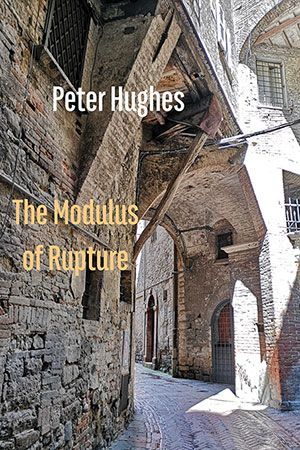
Peter Hughes (ed.) Sea Pie: An Anthology of Oystercatcher Poetry
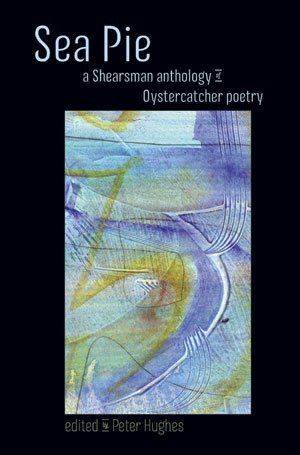
W.D. Jackson Boccaccio in Florence and other poems
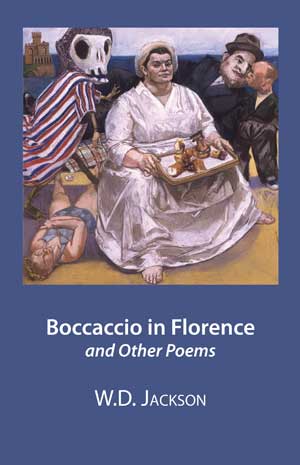
John James Sarments — New & Selected Poems
Published 2018. Paperback, 184pp, 9 x 6ins, £14.95 / $23
ISBN 9781848615786 [Download a sample PDF from this book here .]
“James is decidedly un-English in his love of French and German poetry, in his unembarrassed (and unembarrassing) celebration of the pleasures of the flesh, and in his Marxist and republican politics – which seem to legitimate a taste for the finer things on the grounds of international solidarity against a British suppression of the capacity for joy … John James is one of the great sensualists of twentieth-century lyric poetry.” —John Wilkinson
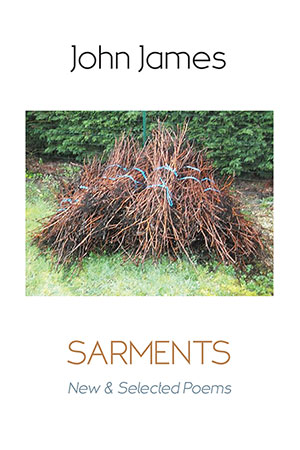
juli Jana ra-t
Published 2014. Chapbook, 32pp, 8.5x5.5ins, £7.50 / $10.95
ISBN 9781848613676 [Download a sample PDF from this book here .]
The figure of ra-t slithers through these pages like the Zelig of London Town—an ocular witness at every juncture of its history. His split name makes him a fractured and contradictory creature. Always recognizable he is also hesitant and obscure, not unlike this text which at every turn employs discontinuity and slippage as formal strategies whilst being as familiar as nursery rhyme. Ra-t is a survivor, but you won’t find him—he is today and gone! —Jeff Hilson
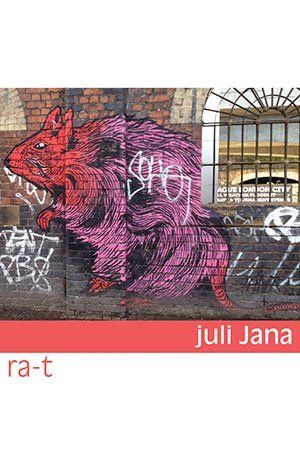
David Hackbridge Johnson Après Rops
Published August 2023. Chapbook, 28pp, 8.5 x 5.5 ins, £7.50 / $10.95
ISBN 9781848618398 [Download a sample PDF from this book
here.]
Félicien Rops (1833–1898) was a Belgian artist, primarily a print-maker. He was a friend of Baudelaire, Gautier, Mallarmé and Péladan. His work – symbolist and decadent in tone – retains its shock value over a century later. In a sequence of poems inspired by Rops’ etchings and peppered with ill-translated fragments plundered from old exhibition catalogues, Hackbridge Johnson wrenches the daring reprobate into the 21st century where he is surely needed to puncture the hypocrisies of a discredited age.
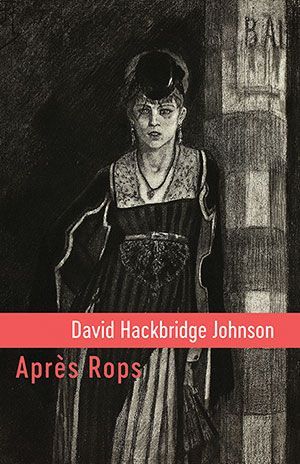
Norman Jope The Rest of the World
Published 2021. Paperback, 96pp, 9 x 6ins, £10.95 / $18
ISBN 9781848617896 [Download a sample PDF from this book here .]
The Rest of the World is Norman Jope’s sixth full-length collection and his second from Shearsman, after Dreams of the Caucasus (2010). ʹGeo-delirumʹ – as the title of one of the pieces puts it – is perhaps the guiding theme of this collection. Following on from
Dreams of the Caucasus , Jope’s prose poems occupy an interconnected – and increasingly digitalised – world in which traditional notions of the ʹpoetry of placeʹ continue to be at stake. Evidence gained from virtual explorations – Google Street View in particular – informs much of the work, enabling the author to ʹtravelʹ to locations as diverse as Sicily, Mississippi and Norway with no more than a series of mouse-clicks. By contrast, other pieces draw upon his first-hand experience of Hungary, Plymouth and elsewhere from his early years onwards as well as on his extensive reading and research. The world is envisaged as a treasure-trove of information that can be accessed, by all available means, in the pursuit of whatever knowledge a finite human life allows.
ʹBefore I dieʹ, he writes in the title piece of the collection, ʹI will visit the rest of the worldʹ… as if saying that somehow made it possible, at least for the duration of its saying. But perhaps in a sense it does.
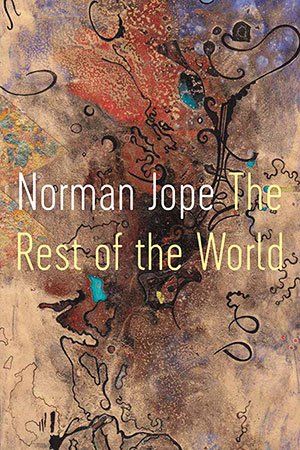
Norman Jope Dreams of the Caucasus
Published 2010. Paperback, 98pp, 9x6ins, £10.95 / $18
ISBN 9781848611290 [Download a sample PDF from this book here .]
Readers will search these pages in vain for coverage of Tbilisi or Ararat, or praise for Georgian wine or Armenian brandy … although Khachaturian gets an adjective of his own in (all too typically) a piece addressing the post-war architecture of Plymouth. Those familiar with Werner Herzog's masterwork The Enigma of Kaspar Hauser will, however, pick up the reference to Kaspar's dream—and, accordingly, much of this retrospective selection of prose-poems deals in the 'remote viewing' that Herzog's flickering rendition of that dream celebrates.
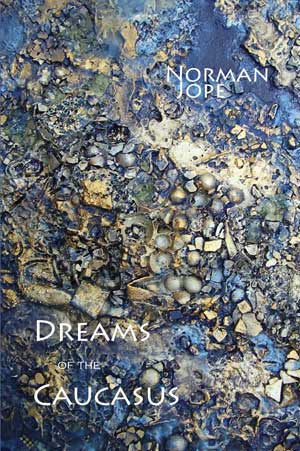
Norman Jope, Paul Scott Derrick & Catherine E. Byfield (eds.) The Companion to Richard Berengarten

Andrew Jordan The Trusty Servant
I chanced to see Old English verse in paragraphs like prose, obsolete characters redolent of atmospheres we are no longer encouraged to admit. An ancient tradition, reaching beyond us into new forms, frames what we might hand over or betray.
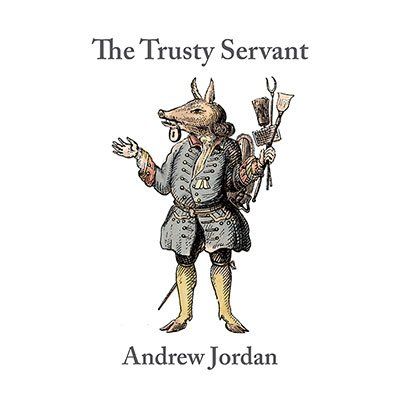
Andrew Jordan Hegemonick
Published 2012. Paperback, 114pp, 8.5x5.5ins, £10.95 / $18
ISBN 9781848612204 [Download a sample PDF from this book here .]
Memory and rehearsal. The cognitive processes upon which we have learned to depend, they keep us in our context, which is where we are screwed. She said, "Use your imagination to set yourself free, be inspired to think the unthinkable." And I did. But there are so many things that contain us.
Hegemonick is a 'free history' of the war against children, something unearthed; it is a delusional narrative, an ode to oblivion; a hymn to the goddess, the once and future porn queen; a therapeutic journal, partially rewritten; a decoy (but not a plan).
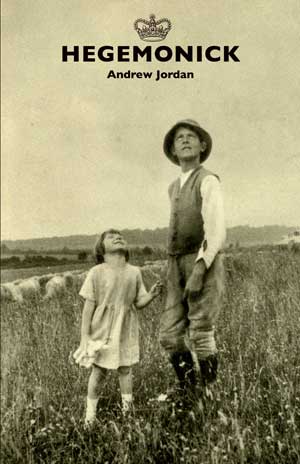
Andrew Jordan Ha-ha
Published 2007. Paperback, 100pp, 8.5x5.5ins, £10.95 / $18
ISBN 9781905700127 [Download a sample PDF from this book here .]
These poems explore the remnants of a system of ancient narrative trackways that criss-cross the landscapes of south and south west England. These flows of energy underpin the hermetics of enclosure. They are explored here for the first time. This book might be a strategy—a self help manual for the ontologically dispossessed—or just an encouragement to trespass in the newly enclosed purlieu of the self. Tell it how you want, emblematic landscapes—and how we perceive them—can mirror identity and relationship, creating a cultural space within which both can become tenable.
